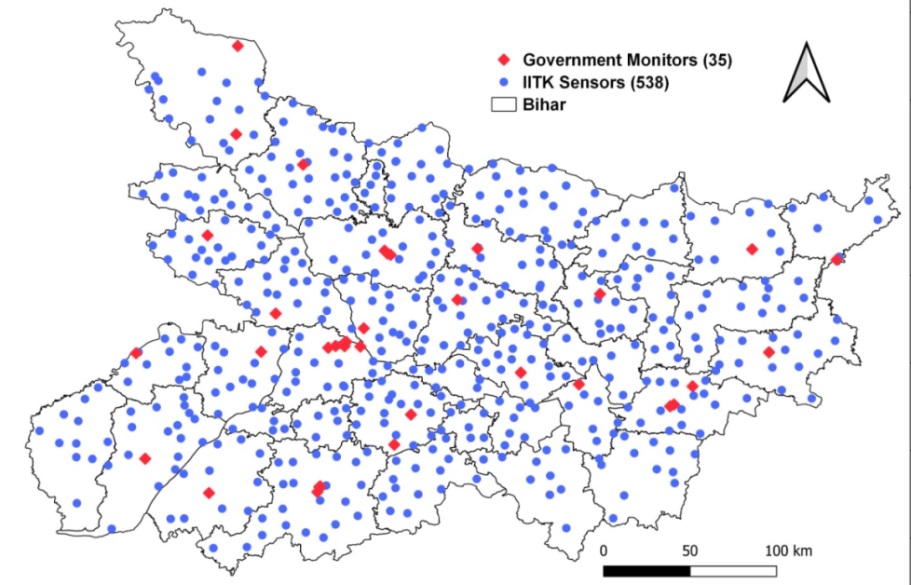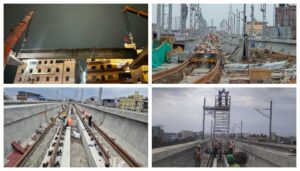Bihar Takes Leap in Air Quality Management: All 534 Blocks Now Equipped with Low-Cost Pollution Sensors

Patna, 14th October 2023: As winter approaches and air pollution becomes a growing concern, Bihar authorities have ramped up their air monitoring capabilities. In a collaborative initiative, the Bihar State Pollution Control Board (BSPCB) and the Indian Institute of Technology Kanpur (IIT-Kanpur) have equipped all 534 administrative blocks in the state with cutting-edge, low-cost air quality sensors.
The project, part of a broader Government of India initiative, aims to offer real-time data on particulate matter levels, specifically PM2.5, which is the main pollutant in not only Bihar but also the entire Indo-Gangetic plain region. The endeavor began with the signing of a Memorandum of Understanding (MoU) between BSPCB and IIT-Kanpur back in March. Installation commenced in August and was completed just last week, according to officials.
This extensive sensor network complements the existing 35 monitoring stations managed by BSPCB across 25 districts in the state. “The pollution challenge has expanded beyond urban zones. Even semi-urban and rural areas are now experiencing elevated levels of pollution, largely due to particulate matter,” said Devendra Kumar Shukla, Chairman of BSPCB. “These new sensors will help us gauge the full scope of pollution, from rural to urban areas.”
Historical data supports the rural contribution to the pollution problem. For instance, the town of Begusarai in north Bihar reported 43 ‘severe’ air quality days between November 1 last year and January 30 this year. This was followed by Siwan with 30 such days, Darbhanga with 27 days, and Bettiah with 24 days. Furthermore, Samastipur recorded 65 days of ‘very poor’ air quality.
According to the BSPCB Chairman, the sensors will provide comprehensive data that can be used to identify micro airsheds, seasonal fluctuations in pollution levels, and other geographical patterns. The information will also be useful for assessing the movement of pollutants both upstream and downstream, facilitating regional cooperation in pollution control.
In a future-forward move, the BSPCB plans to issue pollution forecasts 48 hours in advance, enabling both the public and authorities to take preemptive measures. The MoU stipulates that the project will remain operational for an initial period of three years, with the possibility of an extension thereafter.








